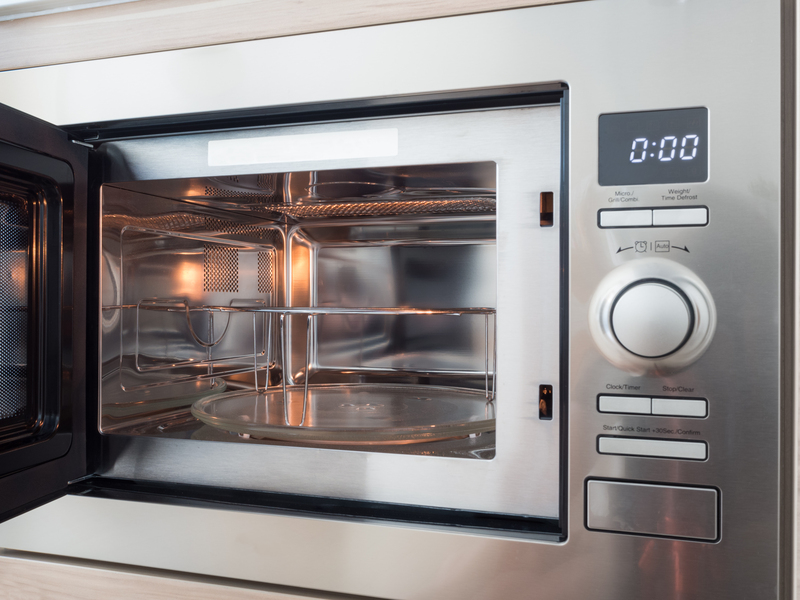The Most Germy Surfaces in Your Kitchen
Posted on 28/02/2024
How to Keep Your Kitchen Clean and Safe
The kitchen is often considered the heart of any home, a place where delicious meals are prepared, memories are made and families gather. However, it is also one of the most germ-prone areas in your home. From raw meat to unwashed produce, dirty sponges and countertops, there are several surfaces in your kitchen that can harbor harmful bacteria and germs. In this article, we'll explore the most germy surfaces in your kitchen and how you can keep them clean to ensure a safe and healthy cooking environment for you and your loved ones.
1. Cutting Boards
Cutting boards are essential tools in any kitchen, but they can also be a breeding ground for bacteria. Whether you use wooden or plastic cutting boards, they can develop deep grooves over time where bacteria can thrive. This is especially true when cutting raw meat, poultry or fish on the board. The bacteria from these foods can easily transfer onto other foods if not cleaned properly.
Tip:
To minimize bacterial growth on your cutting boards, wash them with hot soapy water after each use. For plastic boards, you can also run them through the dishwasher for a deeper clean.
Takeaway:
Consider using separate cutting boards for raw meats and produce to prevent cross-contamination.

2. Kitchen Sponges
Your kitchen sponge may seem innocent enough, but it is actually one of the dirtiest items in your kitchen. Sponges provide the perfect moist environment for bacteria to grow and spread quickly. A recent study found that kitchen sponges contained over 362 types of bacteria per square inch!
Tip:
To keep your sponge clean, replace it every 1-2 weeks or microwave it on high for one minute daily to kill bacteria.
Takeaway:
Consider using dishcloths instead of sponges as they are easier to clean and dry faster.
3. Faucet Handles
Faucet handles are another often overlooked surface in the kitchen that can harbor germs and bacteria. Think about it, you touch these handles with dirty hands before and after handling food. This transfer of bacteria can lead to illness if not washed properly.
Tip:
Wipe down faucet handles regularly with a disinfectant cleaner.
Takeaway:
Encourage everyone in your household to wash their hands before and after handling food to prevent cross-contamination.

4. Refrigerator Handles
Just like faucet handles, refrigerator handles can also be hot spots for germs. Whether it's from touching raw meat packages or dirty hands, these handles can easily become a breeding ground for bacteria.
Tip:
Wipe down refrigerator handles daily with a disinfectant cleaner.
Takeaway:
Regularly clean out your fridge to avoid any potential spills and mold growth.
5. Kitchen Countertops
Kitchen countertops are where all the action happens - meal prep, cooking, and even snacking. However, because of this constant use, countertops can harbor a high amount of germs and bacteria if not cleaned properly.
Tip:
Clean countertops with hot soapy water after each use and disinfect them at least once a week to keep them germ-free.
Takeaway:
Avoid placing food directly on countertops, use cutting boards or plates instead to prevent bacteria transfer.
Pros and Cons:
Pros:
-Regular cleaning of the most germy surfaces in your kitchen can reduce the risk of foodborne illnesses.
-It promotes good hygiene habits in the household.
-Regular cleaning can help extend the lifespan of various kitchen items such as cutting boards and sponges.
-A clean kitchen creates a more pleasant cooking environment.
Cons:
-Constantly buying new sponges or cleaning products can add up financially.
-Cleaning these surfaces may be time-consuming for those with busy schedules.
-Not all cleaning products are environmentally friendly, which can contribute to pollution.
In conclusion, keeping your kitchen clean is vital for the health and safety of you and your family. By regularly cleaning and disinfecting the most germy surfaces, you can minimize the risk of foodborne illnesses and maintain a clean and healthy cooking environment. Remember to follow these tips, consider the takeaways, and be mindful of the pros and cons to keep your kitchen germ-free.

